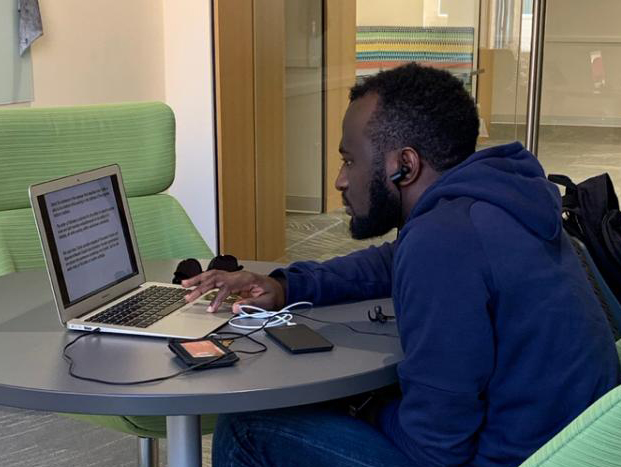Wednesday, December 23, 2020 Be successful in your Spring Three-Week Course

Three-week sessions offer a great opportunity to catch up on required classes and get ahead in your degree. You may not be familiar with the condensed and intensive schedule of a three-week session. These tips will help you manage your time and stay on top of course content.
Plan your time.
Keep in mind that a three-week session requires a larger time commitment each week. The three credits usually earned in a regular 16-week semester are now being earned over three weeks – you'll need to devote more time each day than you would in a typical week. The first thing you should know is whether your course is a Web Conferencing course or an Online course. It's important to plan your working schedule based on how your course will be taking place. If you are in an online course, try not to overwork yourself by cramming all the content into a couple days.
Construct a concrete study plan.
Commit to studying right after your class so you will retain the day's information better, and won't be overloaded with content to memorize at the end of the session. If your schedule doesn't allow for studying right after each class, it'll still help you to set up a designated study time. Figure out when you work best– morning, midday or night– and try to complete most of your schoolwork during that time period.
Create a specific school/study space.
If you are in Lincoln, UNL has created drop-in study spaces in various on-campus buildings for you to use. If you are returned to your hometown for winter break or likewise located elsewhere, you should build a fantastic study space that will keep you comfortable and alert, while minimizing outside distractions. Try not to do class in your bed or while watching television; instead, compartmentalize by designating one specific area for doing all your schoolwork.
Take active notes.
While you're in class, always take active notes. This will help you stay more engaged in the lectures without zoning off– it gives you something to do during class besides staring blankly at the screen. Active note taking will also help you absorb the content the first time around, to minimize your study burden later on.
Make ways to connect socially.
It's easy to feel disconnected from your classmates and professor if you never see them in person. Try to alleviate this issue by setting up a virtual study group with others in the class, and consistently emailing your professor with any questions or comments you have about the course. Engaging with others will keep you interested in the class and avoiding isolation.
Use your campus resources.
You are not on an island by yourself - there are advocates on campus to help you be successful. First, directly contact your instructor if you have questions about the coursework or you are falling behind. Next, connect with your academic advisor to help you locate resources. Finally, get an appointment with Academic Success Coach in the Center for Academic Success and Transition (CAST). You have the options to connect with a coach by Zoom, Skype, phone, email, and text messaging.